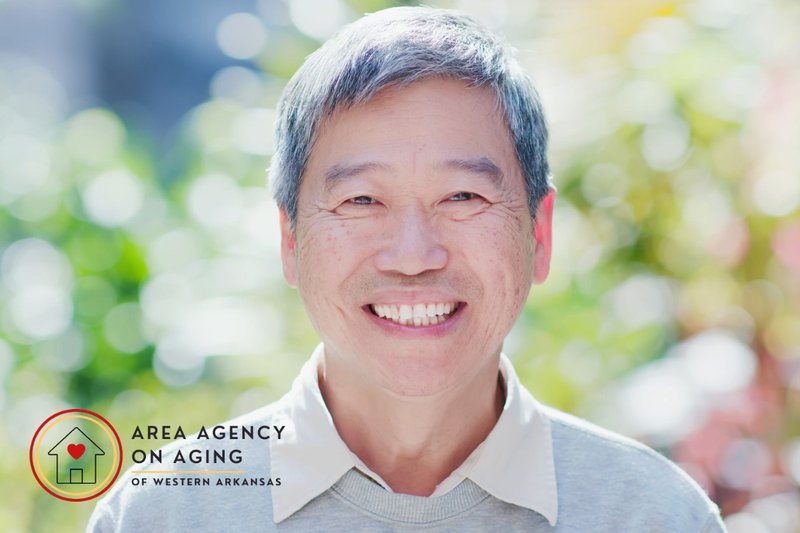If you care for a veteran, you may not know there’s help available just for you. The VA’s Program of Comprehensive Assistance for Family Caregivers (PCAFC) offers monthly pay, health support, and real services. But not every caregiver can join. Want to know if you qualify? We’ll walk you through who’s eligible for VA Caregiver Benefits, how it works, and what steps to take.
Key Takeaways:
- Veterans need to enroll in VA health care, have a 70%+ service-connected disability, and require daily care for over six months.
- Caregivers must be 18+, related or close to the veteran, and live with or plan to live with them.
- Spouses can qualify as caregivers and receive stipends; Aid & Attendance does not pay spouses.
- Monthly stipends are tax-free, based on local home aide rates: Tier 1 = 62.5%, Tier 2 = 100%; max is ~$3,200/month.
- Caregivers can apply online, by mail, or in-person using VA Form 10-10CG; approval takes ~90 days.
- Benefits include CHAMPVA health coverage, mental health support, training, and 30 days of annual respite care.
- For help, call the VA Caregiver Support Line at 855-260-3274 or visit www.caregiver.va.gov.

VA Caregiver Benefits And Support Services
Caring for a veteran is both an honor and a responsibility. Because many veterans live with service-connected disabilities or long-term illnesses, their caregivers often provide daily help with tasks that are essential for safety and quality of life. To make this role more manageable, the Department of Veterans Affairs (VA) offers structured programs, financial stipends, training opportunities, and ongoing support. These VA caregiver benefits are designed to reduce stress, build stability, and ensure that caregivers have the tools they need to succeed. By understanding eligibility requirements, payment structures, and available resources, caregivers can better navigate these programs and provide the best possible care.
Eligibility For PCAFC
The Program of Comprehensive Assistance for Family Caregivers (PCAFC) is one of the most important VA caregiver benefits. To qualify, both the veteran and the caregiver must meet specific conditions:
- Veterans must enroll in VA health care.
- They need a disability rating of at least 70% service-connected.
- Daily assistance is required for at least six consecutive months.
- Their service must fall within designated eras, such as after September 11, 2001, or before May 7, 1975.
- All active caregivers must be at least 18 years old.
- Caregivers should be a family member or someone chosen by the veteran.
- Caregivers must live with the veteran or plan to do so soon after approval.
Each veteran may select one primary caregiver and up to two secondary caregivers, all of whom must contribute to daily support.
Recognition For Spousal Caregivers
Under PCAFC, married couples often participate because spouses are eligible to serve as caregivers. Unlike other programs such as Aid and Attendance, PCAFC allows spouses to receive compensation while providing daily care. Through this benefit, spousal caregivers may access monthly stipends, training, CHAMPVA health coverage if uninsured, and respite care. Because caregiving often falls to spouses, this program ensures they are supported financially and emotionally while meeting the veteran’s needs.
Defining Qualifying Disabilities
The VA defines qualifying conditions based on service connection and severity. The veteran must have an injury or illness linked to active-duty service, be rated at 70% or higher, and require ongoing assistance for at least six months. This includes both physical and psychological health issues such as PTSD, traumatic brain injuries, loss of limbs, severe mood disorders, or vision and hearing impairment. If a veteran struggles with bathing, dressing, eating, or experiences safety risks due to memory or mood-related problems, they may qualify. For confirmation, families can review the official rules on VA’s caregiver eligibility page or call the Caregiver Support Line.
Monthly Stipends
One of the most significant VA caregiver benefits is the monthly stipend. Payments are tax-free and based on the veteran’s care needs and regional wage rates for home health aides. The VA assumes approximately 44 hours of care per week, or about 6.28 hours per day, when calculating stipends. Tier 1 caregivers receive 62.5% of the full local wage estimate, while Tier 2 caregivers receive 100%. For instance, if home health aides average $20 per hour in a given area, a Tier 2 caregiver might receive around $2,750 monthly, while Tier 1 would yield approximately $1,718. These stipends help cover household expenses and recognize the daily work of caregiving.
Tier System For Payments
Payment tiers are based on the level of care needed by the veteran. Tier 2 is for veterans requiring full daily care, while Tier 1 applies when veterans can still manage some tasks independently. A review process involving medical records, clinical evaluations, and in-home visits determines the tier. Because veterans' needs may change over time, the VA reassesses caregivers, which allows them to move their tier level up or down. This flexibility ensures that payments reflect the actual care required at any given time.
VA Caregiver Benefits Reflect Regional Pay Differences
The VA adjusts stipends regionally because wages vary across states and cities. For example, a caregiver in New York City may receive significantly more than one in a rural area of Alabama. The VA updates these rates annually using Bureau of Labor Statistics data. As a result, current stipends may range between $1,750 and $3,200 per month in 2024. To find the latest rates in your area, caregivers can visit the VA Caregiver Support Program site.
Understanding the Application Process
Applying for PCAFC requires VA Form 10-10CG, which can be submitted online, by mail, or in person. The fastest route is through the secure online portal. You can mail paper applications to the Health Eligibility Center in Atlanta or deliver them to a local VA medical center. Required documentation includes details about the veteran’s service, disability rating, and daily care needs, along with caregiver identification and relationship information. Because accuracy is critical, applicants should clearly describe daily tasks such as bathing, eating, or medication management.
Structured Approval Timeline
Once an application is submitted, the VA typically takes 90 days to review it. During this time, they may schedule health evaluations, conduct background checks, and require completion of caregiver training. An in-home visit may also be included to ensure safety and confirm care needs. Responding quickly to calls, completing training early, and keeping records organized can help the process move faster. If questions arise, caregivers can call the VA Caregiver Support Line at 1-855-260-3274 for guidance.
VA Caregiver Benefits Depend On Assessments And Reviews
Every application is carefully evaluated. Clinical assessments confirm whether the veteran’s disability requires full-time care, while home visits verify that caregivers can provide safe and effective support. These evaluations also help determine the stipend tier. Because circumstances change, reassessments are possible, and caregivers may request a new review if the veteran’s condition worsens.
Appeals After Denial
If an application is denied, caregivers may appeal within 30 days by submitting additional evidence, such as doctors’ notes or detailed care logs. Assistance is available through Caregiver Support Coordinators and the Caregiver Support Line. Keeping copies of all forms, letters, and records is essential for a strong appeal.
VA Caregiver Benefits Offer More Than Financial Support
Although stipends are valuable, VA caregiver benefits extend further. PCAFC participants receive mental health counseling, required training on caregiving best practices, and up to 30 days of respite care annually. Training covers safety, stress management, and condition-specific topics like caring for veterans with PTSD or cognitive injuries.
Support Through PGCSS
Even if a caregiver does not qualify for PCAFC, the Program of General Caregiver Support Services (PGCSS) is available. This program provides one-on-one coaching, group support, telephone classes, and peer mentoring. It is open to caregivers of veterans from all service eras who are enrolled in VA health care. For many families, PGCSS serves as an important starting place, providing tools that build resilience and reduce burnout.
CHAMPVA Health Coverage
Primary caregivers enrolled in PCAFC may qualify for CHAMPVA health coverage if they are otherwise uninsured. This comprehensive benefit covers doctor visits, prescriptions, hospital stays, and mental health care. Eligibility requires being the designated primary caregiver of a veteran with a 70% or greater service-connected disability. Applications for CHAMPVA follow acceptance into PCAFC and require VA Form 10-10d.
VA Caregiver Benefits Differ From Aid And Attendance
It is important to distinguish PCAFC from the VA’s Aid and Attendance benefit. PCAFC is specifically for family caregivers of veterans with severe service-connected disabilities, offering stipends, mental health services, CHAMPVA, and respite. Aid and Attendance, however, is an add-on to a veteran’s pension and helps pay for care but does not provide stipends or CHAMPVA. Moreover, spouses cannot be compensated under Aid and Attendance, while PCAFC allows spousal caregivers to receive payment and training. The choice between these programs depends on living arrangements, care needs, and eligibility.
VA Caregiver Benefits Adjust With Annual Updates
Since 2023, stipend calculations have relied more heavily on regional wage data, often raising payments in urban areas. Rates are reviewed annually and may rise to reflect inflation or policy updates. Current payments typically range between $1,750 and $3,200 monthly, with changes expected in 2025 depending on cost-of-living adjustments or congressional action.
Strong Support Networks
Beyond financial and health care benefits, the VA provides access to coaching, peer groups, and training resources. The Building Better Caregivers program offers six-week online workshops, while Caregivers FIRST provides structured training. Peer mentoring programs connect caregivers to others with similar experiences. These resources ensure that caregivers feel supported, informed, and less isolated.
Coordinators And Hotlines
Every VA medical center has a Caregiver Support Coordinator who helps families identify benefits, complete applications, and manage ongoing requirements. Coordinators remain available even after approval, ensuring caregivers continue to receive the right support. For immediate assistance, the VA Caregiver Support Line at 1-855-260-3274 offers direct access to staff who explain program details, answer questions, and provide updates.
Official VA Resources
The best place to start is www.caregiver.va.gov. This site includes program guides, application forms, training resources, and state-by-state service directories. Because information can change, checking this site regularly keeps caregivers updated on pay rates, eligibility changes, and new resources.
Take The Next Step
Caring for a veteran is an act of love, but it does not have to be overwhelming. By exploring what caregiving support services offer, you can discover financial aid, respite programs, and community support tailored to your needs. When you are ready for personal assistance, reach out to Area Agency on Aging of Western Arkansas today. With expert guidance, you can balance your own well-being while continuing to provide compassionate care for the veteran in your life.


